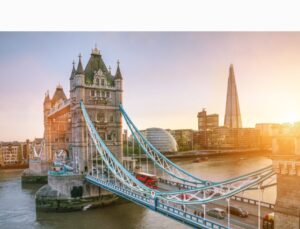
Islam has a rich and varied history in England, dating back to the medieval period. The earliest known Muslim presence in England was during the 8th century, when Muslim traders and travelers came to the country as part of the extensive trade networks of the time. These early Muslims, who were primarily of Arab or Persian descent, likely would have been merchants, sailors, and scholars.
During the medieval period, England had significant contact with the Islamic world through trade and the Crusades. Many English soldiers and merchants who participated in the Crusades came into contact with Islam and some may have even converted to the religion. However, the majority of Muslims in medieval England were likely still merchants and travelers.
In the 16th and 17th centuries, England established trade connections with the Ottoman Empire and the East India Company brought back Muslim lascars and merchants from the Indian subcontinent and Southeast Asia. This led to the growth of small Muslim communities in port cities such as London, Bristol, and Liverpool. These early Muslim communities were largely transient in nature, as the majority of them were sailors or merchants who were only in England for a short period of time.
Muslims significantly increased in number in England during the 18th and 19th centuries, partly as a result of the expanding British Empire and the demand for troops and administrators in its colonies. Muslims from India, the Caribbean, Africa, and the Middle East began to migrate to England as a result of this. While some of these immigrants went on to become prosperous businessmen and merchants, others found employment as labourers. However, these early Muslim communities continued to experience substantial prejudice and discrimination, and they were frequently restricted to particular enclaves in cities like London’s East End.
Due to changes in immigration restrictions and the need for labour in post-World War II Britain, there was a considerable rise in the number of South Asian Muslims emigrating to England in the 20th century. As a result, sizable Muslim populations were established in cities like Bradford, London, and Birmingham. Immigrants from Pakistan, India, and Bangladesh made up the majority of these communities, and they carried their own distinct cultures and traditions with them.
The development of Islamic activity and political engagement during this time was one of the most remarkable features of the Muslim community in England. The increasing alienation and persecution that many Muslims in England felt at the time, as well as current political events on a global scale, such as the rise of nationalism movements in the Middle East and the emergence of separate Muslim-majority countries, all played a role in this.
Dr. Abdullah Yusuf Ali was among the most significant figures in the history of Muslims in England throughout the 20th century. Dr. Ali was a British Indian Muslim scholar who studied Islam and also lectured and wrote about it. He translated the Quran as well. He had a big effect on the Muslim community in England. He was one of the most significant characters in the development of Islamic scholarship in England, and his writings are still read and studied today.
Another important figure in the history of Islam in England during the 20th century was Malcolm X. Malcolm X was an African American Muslim activist and leader who spent a significant amount of time in England during the 1960s. He was a prominent figure in the Civil Rights Movement in the United States and his speeches and writings had a significant impact on the Muslim community in England, particularly among young British Muslims.
In the post-war period, the Muslim community in England continued to grow and diversify. With the arrival of large numbers of Muslim refugees and immigrants from countries such as Somalia, Iraq, and Afghanistan, the community became more diverse in terms of ethnic and national backgrounds. As a result, the Muslim community in England today is a vibrant and diverse one
